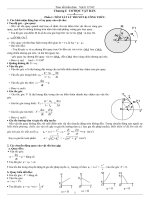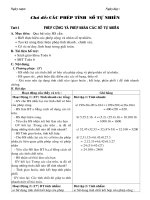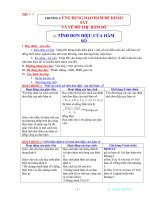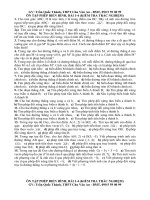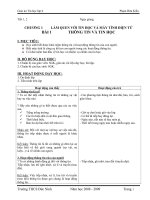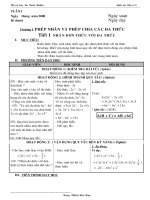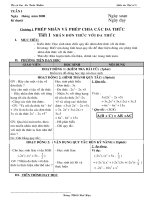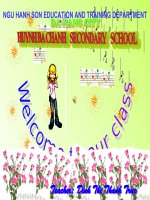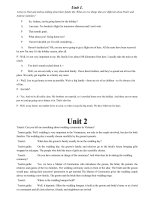1 1 4 animal babies (nonfiction)
Bạn đang xem bản rút gọn của tài liệu. Xem và tải ngay bản đầy đủ của tài liệu tại đây (34.29 KB, 2 trang )
Animal Babies
by Donna Platt
INTRODUCE THE BOOK
Activate Prior Knowledge/Build
Background Read the title, and ask children
what kind of animal babies they have seen. Ask:
What do you like about animal babies? Tell
children that this book is about animal babies.
Preview/Use Text Features Preview the
reader by talking about the photographs together
and naming the labeled items.
Preteach Vocabulary Review the highfrequency words that appear in this book: eat,
her, this, and too. Introduce these key words
from the book: baby (p. 2) and mothers
(p. 2). Discuss these words and add them to a
Word Wall.
READ THE BOOK
Choose among these options for reading to
support children at all English proficiency levels.
Read Aloud Read the book aloud as children
follow along. Pause to verify comprehension and
to explain unfamiliar concepts.
Monitored Reading Have children read
silently a few pages at a time. Use the following
questions to support comprehension:
• Page 2 What do animal mothers do? (They
take care of their babies.)
• Pages 3–7 What are the different names
for baby animals? (The baby animals are a
calf, ducklings, a kitten, chicks, and a kit.)
• Page 8 What kinds of animals are shown
in the photograph? (The photograph shows
a horse and its foal, a goat and its kid, and
a duck and its ducklings. You may wish to
teach children the names for a baby horse
and goat.)
ELL Reader 1.1.4
Nonfiction
RESPOND
Answers to the Reader’s Inside Back Cover:
Talk About It
1. Children should describe some of the baby
animals depicted in the book.
2. They eat with them, swim with them, clean
them, feed them, and watch them. (Main Idea)
Write About It
3. Children may draw and write about one of
the baby animals shown in the book, such as a
calf or a kit. Or, they may choose another kind of
baby animal, such as a piglet.
Support writers at various English proficiency
levels.
Beginning Have children copy the name of
the animal from the book.
Intermediate Invite children to use this
model in their writing: A puppy is a baby dog.
Advanced Have children write a sentence to
explain why this baby animal is their favorite.
Extend Language A baby pig is a piglet. A
baby bear is a cub. A baby goat is a kid. A
baby deer is a fawn.
Answers to page 8:
Children should draw an animal baby with its
mother. Possible response: A mother bird feeds
her chicks.
Family Link Read aloud the Family Link activity
on page 8 before sending copies of the Study
Guide home with children. Later, have children
share what they learned from their families about
animal mothers and babies.
© Scott Foresman 1
Reread Have children reread the book with a
partner, in small groups, or independently. Have
them complete the Study Guide on page 8.
ELL Readers Teaching Guide
Unit 1, Week 4 Animal Babies
7
Study Guide
Name
Animal Babies
• Read Animal Babies again.
• Draw a picture that shows what the story is about.
• Write a sentence that goes with your picture.
Family Link
© Scott Foresman 1
Ask family members to compare how human mothers
and animal mothers care for their babies.
8
Animal Babies Unit 1, Week 4
ELL Readers Teaching Guide
